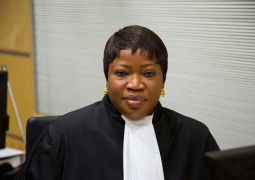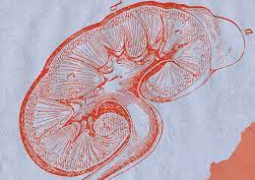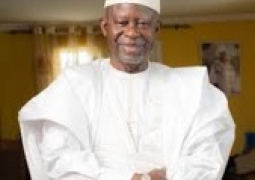
The lawyer, who once lectured at GTTI and became part of the committee that set up the University Law Faculty in 2008, was among the commissioners of the recent Constitutional Review Commission (CRC).
Mr. Gaye explained that after the junta took power, they changed the constitution with a decree that is not accepted in a democratic government.
Dilating on the formation of Decree 33 on 31 March 1995, he clarified that there was no parliament and the law vested power in the Provisional Ruling Council. He added in the process of drafting another constitution, the Decree mandates the commission for public consultation to determine the sovereign will of the people.
He continued that the commission later produced a draft constitution and both were submitted to the military council, saying after that, a referendum was conducted and the majority voted yes. He said that was what made the 1997 Constitution official.
“The draft that was sent to the AFPRC and the one that goes for the referendum had differences, there were unknown changes made before referendum.”
Lead Counsel Essa Faal then told the witness that the preamble of 1997 stated that Jawara so badly overstayed in power and that gave him powers to abuse office, which doesn’t go well with the people, adding that the preamble also indicated that the reason why the people of The Gambia endorsed the 1997 Constitution was to change the evil deeds perpetrated by the then Jawara Government.
Counsel Faal stated that most of the things stated in the preamble of the 1997 Constitution were not true by looking at the human right violations that occurred during the 1994 coup.
“The draft stated that the ministers, judges and IEC chairman, chief of army and others needed to be confirmed by the National Assembly to make sure that they are qualified for the position. The junta later removed those provisions and there is no confirmation of these positions in the 1997 Constitution,” Gaye posited.
“The Draft of 1996 Constitution also provided that both the President and the Vice President supposed to be elected so that the President wouldn’t able to sack the vice but it was removed. And that was a result of giving powers to the people to elect their choice,” Gaye added.
He told the commission that the 1996 Draft Constitution also provided a term limit of two, in which the president could not stay for more than 10 years. He said that provision can’t be removed without a referendum but it was removed by Jammeh.
“The same provision is added to the new draft and it may be the reason why it has not been passed. Both the people in all corners of The Gambia and abroad stated that they never wanted a President to sit for more than 10 years.”
With regard to membership in parliament, he testified that the 1996 Draft Constitution provided for 66 members and 20 propositional representations were removed, saying the speaker and deputy were to come from elected members.
“All those provisions were removed. Both elected and nominated members would lose their seats if they are expelled from their parties. That was a provision in the 1997 Constitution.”
He confirmed that the 1997 Constitution gives power to the President to sack judges while adding that he had never seen this kind of provision in any country’s constitution. He stated that almost all the provisions that denied Jammeh from abusing power were removed. He said the immunity clauses in the 1997 Constitution were unamendable.
The Counsel stated that 1997 Constitution was so bad that Jammeh needed a crowning ceremony to be a king, Sowe recalled. He added the change of the clause secular state in 2001 from the constitution was unconstitutional because there was no referendum.
Dwelling on Jammeh’s declaration of Gambia as Islamic State, the witness described it as unconstitutional and the president has no powers to do that without the involvement of the National Assembly.
“On the elections of chiefs, the positions used to be elected during Jawara era but Jammeh changed the constitution to give himself the powers to appoint chiefs. The constitution also gives the president to only involve in agriculture but Jammeh changed it to involve himself in other businesses.”
In elections, he explained that the president should win at least 50% plus 1 and that was going till the amendment in 2003 that was made for the simple majority. The president did this because of the closeness on 2001 election results.”
On a number of ministers, he disclosed that the constitution stated for 15 ministers but Jammeh changed it to many as he could appoint.
Counsel Faal said knowledge about a country means a study of its constitution. He added that the current Gambia Constitution teaches every leader to become a dictator and the country deserves a better constitution than the one being used now.
After a marathon testimony, the witnesses also outlined how court bails were granted and the change of economic crime provisions in the constitution.
In his concluding remarks, he said the president’s term is coming to an end and nothing has been done about the draconian laws. He said much has not been done so far on the change of the bad laws, saying the government needs to be serious about law reforms. He also called on government to also look at the social and economic justice challenges.





